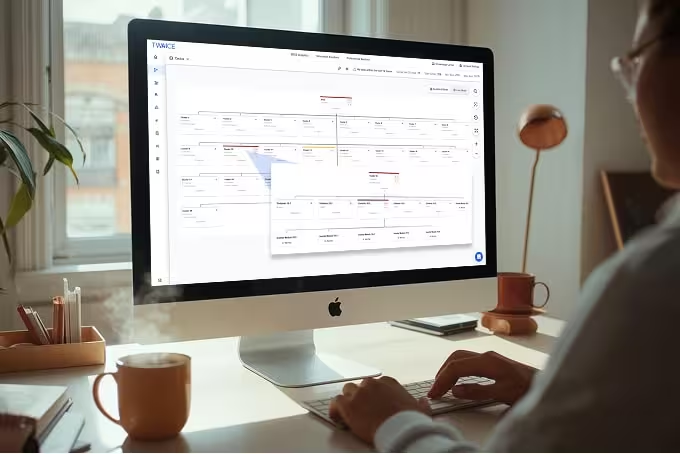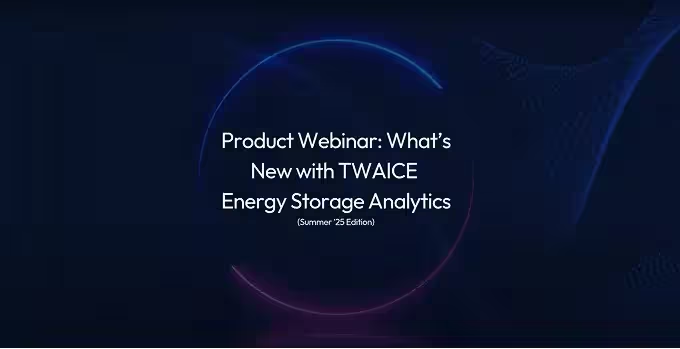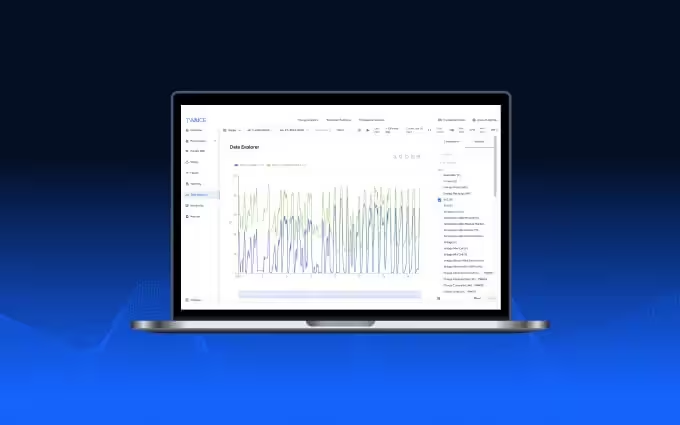De-risk Deployment & Operations of BESS
On average battery energy storage systems are only available 82% of the time. Many issues however can already be detected before deployment, in the commissioning phase. The article explains the advantages of digital commissioning, like a quicker analysis and more detailed insights into KPIs and potential manufacturing failures.

Protect Your Investment & Reputation
Battery energy storage systems (BESS) are becoming increasingly popular to store excess energy generated by renewable sources such as solar and wind, as well as to improve the efficiency and operation of the electric grid. The global energy storage system market is expected to grow 15-fold by 2030.
However, energy storage systems come with risks. Average BESS availability is only 82% , meaning asset owners miss out on considerable revenue due to downtime. Furthermore, in the past years, 58% of energy storage failures have happened within the first 2 years of storage life, showing this to be the most critical phase. These failure events can and should be prevented. Many issues can be detected before deployment, in the commissioning phase, to avoid unnecessary and expensive downtime in the operation phase.
TWAICE provides digital commissioning to asset owners, helping them to identify manufacturing (and other) problems before deployment, laying the groundwork for safe, reliable and profitable operations. After deployment of the storage, TWAICE analytics helps asset owners de-risk their storages long term.

What Is Energy Storage System Commissioning?
During installation of energy storage systems, a process of commissioning takes place to test and verify that an ESS is installed and configured correctly. The results are provided in a commissioning report that provides detailed information about the system's performance and safety, which can be used to identify and resolve manufacturing issues, and to ensure compliance with regulations.
Energy storage commissioning includes checking the electrical connections, software settings, and physical components of the system to ensure that it is operating within the specified parameters. Commissioning reports are used to document the results of these tests and provide a record of the system's performance.
Commissioning reports typically include information such as the system's capacity, efficiency, and power output. They also include details on any issues that were identified during the commissioning process and the steps taken to resolve them. In addition to technical information, commissioning reports include safety-related information, for example details on the safety features of the system and the steps taken to ensure that the ESS is compliant with local and national safety regulations.
Commissioning reports are important for the ESS manufacturer and installer. The report provides evidence that the system was installed and configured correctly and that it meets the specifications and requirements of the project. This can be useful in the event of any warranty claims or disputes.
De-Risking BESS Deployment with TWAICE Digital Commissioning
Digital commissioning makes it possible to gain an initial status of the BESS at the Beginning of Life (BoL) with minimal effort. Only an internet connection is needed, rather than on-site measurements. The KPIs and information provided by Digital Commissioning have many benefits. They enable the asset owner to verify the information provided by the integrator, and if necessary, discuss warranties. These KPIs can also serve as benchmarks for future reporting.
As well as providing KPIs, Digital commissioning offered by TWAICE helps energy storage system owners find manufacturing failures or other issues that could not have been found with on-site commissioning. It provides more detailed battery key performance indicators than on-site commissioning as it analyzes the data at string level, whereas onsite commissioning often analyzes at the inverter level. As defects are more common on these smaller levels, digital commissioning can uncover more issues than would be possible with on-site measurements.
Process
During the commissioning, TWAICE must have a continuous data connection to the storage. TWAICE calculates the initial Discharge- and Charge Energy Capacity, DC-DC Roundtrip Efficiency (RTE) and the DC Resistance (DCR) for the storage. Calculations are based on string level data and aggregated on inverter level.
De-Risking BESS Operations with TWAICE In-Life Analytics
After commissioning and deployment, TWAICE provides in-life monitoring to asset owners so they can ensure availability of their energy storage systems and avoid thermal runway throughout the lifetime of the storage systems. Energy storage systems are connected to the TWAICE cloud so that data can be ingested and analyzed using state of the art algorithms. These vital health insights are then provided on a dashboard and are available via API.
Safety Monitoring
TWAICE safety monitoring provides customers with an incident log so they can track all possible incidents that have occurred in any specified timeframe. In addition, customers can receive notifications so that they are aware when temperature, current or voltage of energy storage systems reach an unsafe level. The thresholds of what is classed as unsafe are specified by the customer.
Performance Management
With TWAICE performance management, customers can reduce downtime and ensure availability by identifying underperforming storage components down to single modules, for example identifying spreads. Customers can view insights on an asset management dashboard to get an immediate overview of the performance of storage fleets.
Warranty Tracker
The TWAICE warranty tracker provides complete continuous transparency on the BESS warranty conditions, enabling asset owners to avoid unplanned warranty deratings, simplify warranty claims, protecting the financial value of the asset.
Conclusion
With Digital Commissioning and In-Life Analytics, TWAICE assists asset owners de-risk the deployment and operations of their BESS. With Digital Commissioning, asset owners get an overview of their BESS status & performance, and can identify and fix problems before deployment, ensuring maximum availability in the early years of operation. After commissioning, asset owners can use TWAICE in-life analytics to ensure safe and reliable operations of their storages throughout their lifetime.
Interested in real-life examples? The pdf-version of this article includes two real-life cases about Digital Commissioning and Safety Analytics.
Sign up for the next live group demo and learn how TWAICE can transform your BESS operations. In just 30 minutes, you’ll get a demo of key features and use cases, and engage with our product experts for a live Q&A.




.avif)
